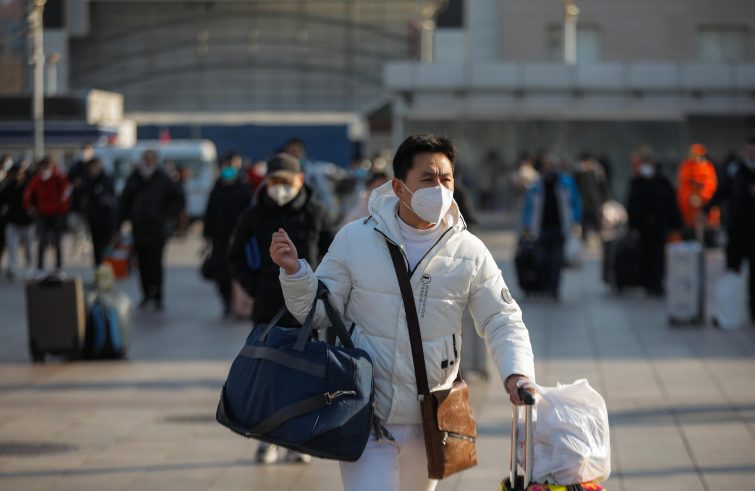
It does not pose a threat. Even though it is named after a mythological monster that terrified North Sea sailors in ancient times. The subvariant XBB.1.5, known as the Kraken new variant of SARS-Cov2 virus, is reportedly circulating in North America and China. So far we know it is a variant of the Omicron strain, which means that it is just as contagious and its symptoms do not appear to be severe. According to Massimo Ciccozzi, Head of Medical Statistics and Molecular Epidemiology at the Campus Bio-Medico University in Rome, testing of travellers from China should be tightened also in Italy in order to monitor infections, especially during the festivities connected with the Chinese New Year.
Professor, what do we know about the Kraken variant?
Kraken is a sub-variant of Omicron. The symptoms, which are not severe but mild, remain the same. The Omicron strain has many variants because every time it replicates the virus produces mutations. Most are lost, but the one that is congenial, and thus gives it an advantage, is preserved. The virus needs the mutation to elude the immune system.
However, no scientific data to date indicate that the variant evades the immune system.
A study we are working on at Rome’s Campus Bio Medico specifically focuses on the virus’ immune-evasion capacity. We are waiting to see the results.
Is it true that it is the most contagious strain so far?
Data shows that it is able to spread just as other Omicron strains, meaning that one person can infect as many as 18 to 20 people.
However, it should be noted that from an evolutionary point of view, the virus has found its optimal condition: it infects, infecting as many people as possible, but is not lethal.
We have now reached the endemicisation stage: data from Italy show that hospitalisations are in check although the number of cases is increasing.
Will we have to get used to the virus?
We will have to get used to recurrent surges in outbreaks, followed by decreases. Most importantly, we should remember that COVID is not a seasonal disease like influenza.
Is the testing of travellers arriving from China effective?
Minister Schillaci requested that all travellers from China be tested from the start. I think it was the best and most timely approach.
Sequencing is important to understand if different variants arrive in Italy.
None has been detected so far. It will be a matter of stepping up sequencing during the Chinese New Year period, that is, at the end of the month, when thousands of persons will return to Italy. But all European countries should adopt the same measure, testing all travellers from China, if we are to achieve the best result.
Controversies about vaccine safety, notably myocarditis in young people, have recently resurfaced. To what extent do these claims correspond to the truth?
With regard to the risk of myocarditis, a study conducted in Israel was published in the November issue of the New England Journal of medicine, which found, in a small sample, that the adverse event in young people who had been vaccinated with Pfizer BioNTech was rare.
The risk is very rare in the opinion of the EMA Risk-assessment Committee, which gave its opinion on the Comirnaty and Spikevax vaccines following two large European epidemiological studies,
one based on data from the French national health system, and the other on data from the Nordic register.
In the meantime, the shortage of medicines in Italian pharmacies is a cause for concern.
This shortage is attributable to two different reasons: firstly, the lack of raw materials, due to the blockades resulting from the war in Ukraine, and secondly, many people’s habit of browsing the Internet before contacting their GP, whom patients should consult.
Only a physician can establish whether a medicine – ranging from antipyretics to antibiotics – should be administered in the case of influenza.
Let us remember that the flu is a virus and only a physician knows if you need an antibiotic, which is effective in the case of bacterial co-infection.












